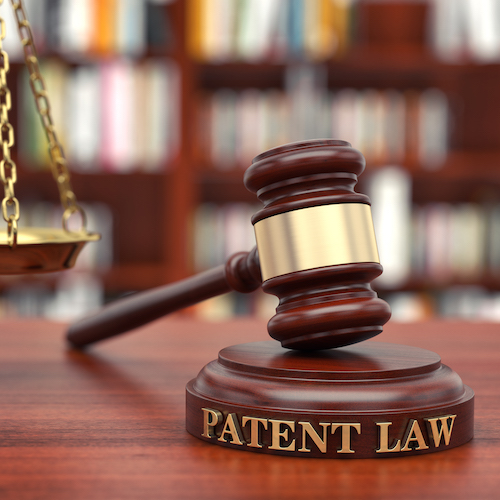 On Tuesday, November 13th, a jury in the United Stated Federal District Court for the District of Delaware delivered a verdict awarding nearly $24 million dollars in reasonable royalty damages to plaintiffs Bio-Rad Laboratories and the University of Chicago. Along with finding that defendant 10x Genomics had infringed upon patents covering genetic analysis technologies, the jury also found that 10x Genomics’ infringement was willful and found it “highly unprobable” (i.e., the words of the jury verdict form) that the asserted patent claims were valid.
On Tuesday, November 13th, a jury in the United Stated Federal District Court for the District of Delaware delivered a verdict awarding nearly $24 million dollars in reasonable royalty damages to plaintiffs Bio-Rad Laboratories and the University of Chicago. Along with finding that defendant 10x Genomics had infringed upon patents covering genetic analysis technologies, the jury also found that 10x Genomics’ infringement was willful and found it “highly unprobable” (i.e., the words of the jury verdict form) that the asserted patent claims were valid.
The recent jury verdict found that the defendants had infringed upon claims of the following patents asserted in the infringement case:
- U.S. Patent No. 8889083, titled Device and Method for Pressure-Driven Plug Transport and Reaction. Issued in November 2014, it claims a microfluidic system including microfabricated substrates and methods of conducting reactions within those substrates, the reactions occurring in plugs transported in the flow of a carrier-fluid.
- U.S. Patent No. 8304193, titled Method for Conducting an Autocatalytic Reaction in Plugs in a Microfluidic System. Issued in November 2012, it claims a method for conducting an autocatalytic reaction that addresses handling difficulties in microfluidic systems involving particulates which aren’t isodense, or of the same density, of the containing fluid.
- U.S. Patent No. 8329407, titled Method for Conducting Reactions Involving Biological Molecules in Plugs in a Microfluidic System. Issued in December 2012, it claims a method for conducting a reaction that overcomes issues in conducting reactions with larger biological molecules like DNA and proteins.
RainDance Technologies, which was acquired by Bio-Rad in early 2017, and the University of Chicago first filed a patent infringement suit against 10x Genomics in February 2015. In a third amended complaint filed in October 2016, RainDance alleged that 10x Genomics had been operating in “stealth mode” prior to January 2015 until it began marketing a commercial genetic analysis tool known as the GemCode platform. RainDance’s allegations included that representatives of 10x Genomics regularly interacted with RainDance representatives at various scientific and medical research conferences to discuss RainDance’s research and development efforts and that executives for 10x Genomics monitored RainDance’s patenting activities and had knowledge of the patents-in-suit well before the lawsuit was filed.
After trial, the jury found that various products marketed by 10x Genomics, including the GemCode Long Read, Chromium Genome/Exome and Chromium Single Cell 3’, infringed upon the asserted claims of the ‘083, ‘193 and ‘407 patents-in-suit. As well, the jury found in favor of Bio-Rad and the University of Chicago regarding all of the invalidity defenses raised by 10x Genomics. These include the defendant’s arguments that claims 1 and 9 of the ‘083 patent were invalid for indefiniteness; claims 6 and 8 of the ‘193 patent were invalid for obviousness or lack of enablement; claim 1 of the ‘407 was invalid as anticipated; claims 10 and 11 of the ‘407 patent were invalid for obviousness; and claims 1, 10 and 11 of the ‘407 patent were invalid for lack of enablement. The plaintiffs also won out on their argument that 10x Genomics’ infringement has been willful based on egregious conduct, including continuing to infringe the ‘193 and the ‘407 patents after failing to have claims asserted from those patents invalidated through inter partes review (IPR) proceedings at the Patent Trial and Appeal Board (PTAB).
The past year has been very active in terms of legal proceedings which are taking place between Bio-Rad and 10x Genomics according to data collected from Lex Machina. In January of this year, Bio-Rad filed a separate patent infringement case against 10x Genomics in the Northern District of California where it alleged more willful patent infringement claims against 10x Genomics based on claims asserted from a separate series of four patents covering genomic sequencing technologies. Then in October, Bio-Rad filed another complaint in the District of Delaware alleging patent infringement. In both complaints, Bio-Rad noted that a collection of former employees left the company to found 10x Genomics in 2012 to compete in the genetic testing field.

![[IPWatchdog Logo]](https://ipwatchdog.com/wp-content/themes/IPWatchdog%20-%202023/assets/images/temp/logo-small@2x.png)

![[Advertisement]](https://ipwatchdog.com/wp-content/uploads/2024/04/Artificial-Intelligence-2024-REPLAY-sidebar-700x500-corrected.jpg)
![[Advertisement]](https://ipwatchdog.com/wp-content/uploads/2024/04/UnitedLex-May-2-2024-sidebar-700x500-1.jpg)
![[Advertisement]](https://ipwatchdog.com/wp-content/uploads/2024/04/Patent-Litigation-Masters-2024-sidebar-700x500-1.jpg)

![[Advertisement]](https://ipwatchdog.com/wp-content/uploads/2021/12/WEBINAR-336-x-280-px.png)
![[Advertisement]](https://ipwatchdog.com/wp-content/uploads/2021/12/2021-Patent-Practice-on-Demand-recorded-Feb-2021-336-x-280.jpg)
![[Advertisement]](https://ipwatchdog.com/wp-content/uploads/2021/12/Ad-4-The-Invent-Patent-System™.png)






Join the Discussion
One comment so far.
anonymous
November 26, 2018 04:13 pmCorrection – The verdict form is in favor of validity. The patents are not invalid. The article mistakenly says the jury found it ““highly unprobable” that the claims were valid.
“Has 10X Genomics proven that it is highly probable that either claims 1 or 9 of the ‘083 Patent is invalid as indefinite? Answer: No.”
To me, it seems the “highly probable” standard is even lower than the “clear and convincing evidence” standard, and defendants didn’t meet that burden.